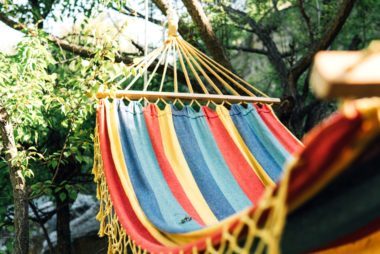Yes, Summer Seasonal Affective Disorder Is a Thing. Here’s How to Beat It.
At least one in 10 cases of seasonal affective disorder—depression tied to the weather—occur in the summer. Here are the symptoms to watch for and simple ways to rediscover the glory of summer.
You're depressed every summer—year after year

"The symptoms of summer onset of seasonal affective disorder (SAD) are similar to those of normal depression, but they are relieved during the fall and winter months and return annually during the spring and summer months," says Julienne Derichs, a Licensed Clinical Professional Counselor in private practice at Couples Counseling Today in Highwood, Illinois. Just like winter-onset SAD, summer seasonal affective disorder returns each year at about the same time. These SAD-beating strategies can help in summer or winter.
Depression runs in the family

Whether its nature (genetic) or nurture (learned through a childhood of exposure), depression and its related mood disorders—including SAD—tend to run in families. Take a look at your parents and siblings—do they dread sunshine and the beach? "Researchers think that SAD may have a genetic component; more than two-thirds of patients with SAD have a relative with a major mood disorder," says Derichs.
You're getting too much sunlight

Sunlight and dark help regulate the natural rhythms of your body—especially melatonin, a hormone the body produces at night. If you're in the sun all day and then on your phone, tablet, or computer before bed, that extended exposure to bright light could be suppressing release of this crucial sleep hormone. That's why one summer SAD theory posits that too much sun disrupts melatonin production, says Derichs.
You're not getting regular sleep

Your body's systems follow a 24-hour series of patterns—your temperature, your metabolism, and your sleep are all dependent on your circadian rhythms, as these patterns are known. "If people stay up later in the summer, it could throw their sensitive circadian rhythms off," says Derichs. Poor sleep is a risk factor for depression, so if you sleep poorly or significantly less in summer, you could be opening the door to SAD. Try these tips for getting a sounder, longer full night of shut-eye.
You live in the South

No one is sure why, says Derichs, but "people in southern U.S. states tend to experience summer SAD more so than those in the north." Considering that the lower latitudes experience longer days (more sunlight), higher temps and warmer nights (which can equal worse sleep), it starts to make sense that the risk may be higher below the Mason-Dixon Line. Here are some ways to stay cooler this summer.
You can't adjust to the summer routine

Schedules shift in summer—the kids are off, vacations are more frequent—and that change in routine can throw a monkey wrench into your mood. The sudden summertime schedule change may trigger summertime SAD says Helen Odessky, BS, PsyD, a clinical psychologist and author of Stop Anxiety from Stopping You.
For full and original article, click here: http://www.rd.com/health/wellness/summer-seasonal-affective-disorder/


